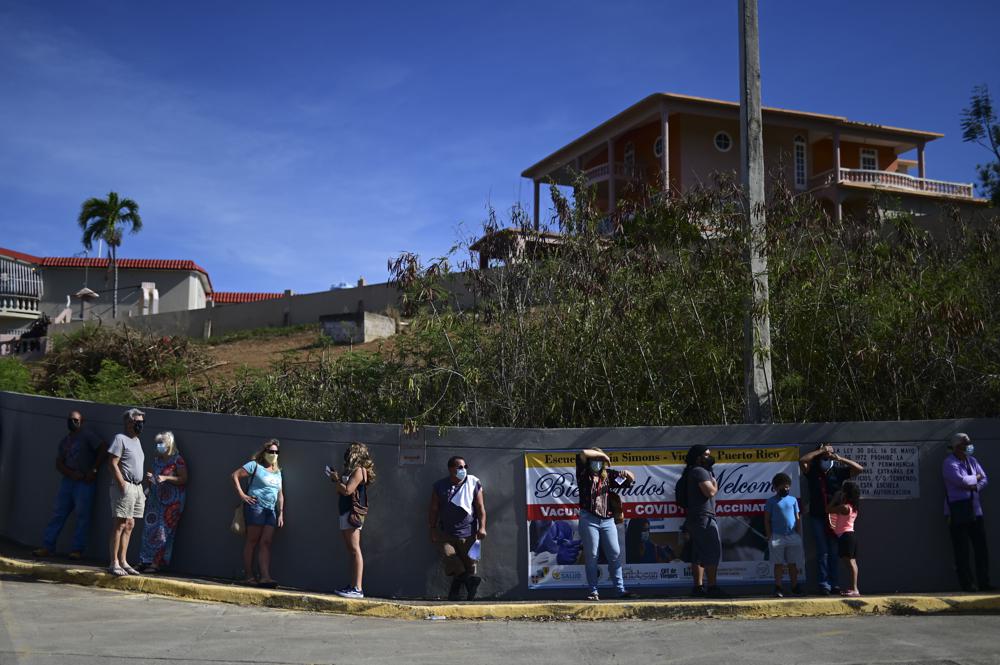
Rodríguez-Cotto v. Pierluisi-Urrutia
What's at Stake
This case is about whether the government can impose sweeping restrictions on “false alarms” about public emergencies, without specifying what constitutes a false alarm.
Summary
Filed in the midst of the COVID-19 public health crisis, this lawsuit raises a First Amendment challenge to a Puerto Rico law that makes it a crime to share so-called “fake news” about emergencies on the Island. The law, which was passed in 2017 and expanded during the COVID-19 pandemic, makes it a crime to knowingly raise a false alarm (a) about an imminent catastrophe or (b) that endangers personal safety or property. People convicted under the law could face up to three years in prison, as well as thousands of dollars in government fines.
Overbroad laws like this one unduly chill public debate in emergencies—when the public has an especially strong interest in the truth, not just the government’s preferred narrative. Even if the government is not actively trying to suppress the truth, attempts to suppress reporting that is critical of the government or that contradicts the government’s information threaten to undermine public trust in the veracity of speech that is not suppressed. Moreover, the fact that Puerto Rico’s law purports to target knowingly false alarms does not mean that only lies will be deterred. The law’s vague and sweeping language does little to limit the government’s discretion in deciding whom to prosecute, nor does it give people sufficient guidance to know what speech may constitute a crime. People will naturally think twice before speaking—or refrain from speaking altogether—if a factual dispute with the government or an inadvertent mistake threatens to land them in prison.
This is why the First Amendment protects false speech in the vast majority of circumstances, and requires additional protections, absent here, to ensure that even laws targeting false speech don’t trench on general information-sharing or public debate. Puerto Rico’s “fake news” law doesn’t include such limitations. While it remained in effect, investigative journalists like our clients covered public emergencies like COVID-19 at risk of prosecution.
The Constitution stands for the principles that we cannot depend on the government to regulate discussion on matters of public concern, and that a free press is the only guarantee of a well-informed public. Especially during times of emergency, the First Amendment rights to free speech and a free press must be jealously guarded against encroachment by the government.
On March 31, 2023, the U.S District Court for the District of Puerto Rico permanently enjoined the law, holding that it violates the First Amendment because it imposes a content-based restriction on protected speech without adequate justification. The court noted that the government had failed to demonstrate that less restrictive alternatives, such as increased government transparency, would not adequately serve the government’s interests in protecting public safety. As the court put it, “[t]he watchdog function of speech is never more vital than during a large-scale crisis.”
Legal Documents
-
04/03/2023
District Court Opinion -
09/29/2020
Defendant's Surreply Opposing Plaintiff's Renewed Motion for a Preliminary Injunction -
08/28/2020
Plaintiffs' Reply in Support of Renewed Motion for a Preliminary Injunction -
08/21/2020
Defendant's Motion Opposing Plaintiff's Renewed Motion for a Preliminary Injunction -
08/20/2020
Amici PEN America & Univ. Ga. School of Law's First Amendment Clinic's Memorandum in Support of Plaintiffs' Renewed Motion for a Preliminary Injunction -
07/29/2020
Plaintiffs' Memorandum in Support of Renewed Motion for a Preliminary Injunction -
05/20/2020
Complaint for Declaratory & Injunctive Relief
Date Filed: 04/03/2023
Affiliate: Puerto Rico
Date Filed: 09/29/2020
Affiliate: Puerto Rico
Date Filed: 08/28/2020
Affiliate: Puerto Rico
Date Filed: 08/21/2020
Affiliate: Puerto Rico
Date Filed: 08/20/2020
Affiliate: Puerto Rico
Date Filed: 07/29/2020
Affiliate: Puerto Rico
Date Filed: 05/20/2020
Affiliate: Puerto Rico
Press Releases
Judge Strikes Down Unconstitutional “Fake News” Law in Puerto Rico
ACLU reta las leyes de Puerto Rico contra ‘fake news’ de COVID-19
ACLU Challenges Puerto Rico COVID-19 ‘Fake News’ Laws